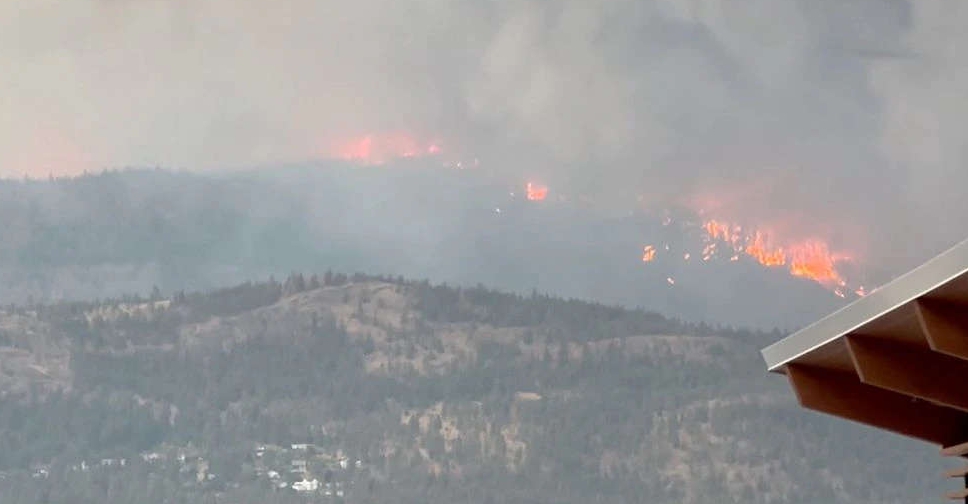
Canada's western province of British Columbia declared a state of emergency on Friday as firefighters battled wildfires raging in the hills and mountains above West Kelowna, forcing thousands of evacuations.
This is according to Reuters' latest report.
West Kelowna, a city of 36,000 people, is located some 300 kilometres east of Vancouver. Evacuations were also being carried out north of nearby Kelowna, a city with a population of about 150,000, also on Okanagan Lake.
The flames and smoke were visible from West Kelowna, and smoke filled the valley surrounding the lake.
"We are facing the worst wildfire season in our province's history," Reuters quoted British Columbia Premier David Eby telling reporters when he made the declaration. "This unprecedented situation has come to a head this evening. In just the last 24 hours, the situation has evolved and deteriorated quite rapidly."
The province has gone from about 4,500 people under evacuation order to about 15,000 in the past 24 hours. An additional 20,000 people are under an evacuation alert.
"The situation is unpredictable right now, and there are certainly difficult days ahead," Eby said.
More than 2,400 properties were evacuated earlier in West Kelowna, officials said, and several structures were destroyed during the night.
"We fought hard last night to protect our community," Jason Brolund, West Kelowna fire chief, told reporters earlier. "Night turned to day because of the orange glow of the clouds and the fire."
The expanse of fires and disruption to life and land underscores the severity of this year's worst-on-record Canadian wildfire season, with more than 1,000 active fires burning nationwide.
Some 1,425 km to the northeast, the massive blaze threatening Yellowknife, the Northwest Territories capital city, made little progress on Friday, the territorial fire service said, because of successful firefighting.
By Friday evening, some 19,000 of the city's 20,000 inhabitants had evacuated, the territories' environment and communities minister Shane Thompson told reporters.
Experts say climate change has exacerbated the wildfire problem. Officials say that drought and high temperatures have contributed to the number and intensity of this year's fires. Much of Canada has seen abnormally dry conditions.



 Israeli attacks on Gaza killed 60 people in 24 hours
Israeli attacks on Gaza killed 60 people in 24 hours
 Trump fires National Security Agency director
Trump fires National Security Agency director
 Israel steps up Syria strikes, says Turkey aims for 'protectorate'
Israel steps up Syria strikes, says Turkey aims for 'protectorate'
 US sending Israel 20,000 assault rifles that Biden delayed
US sending Israel 20,000 assault rifles that Biden delayed



